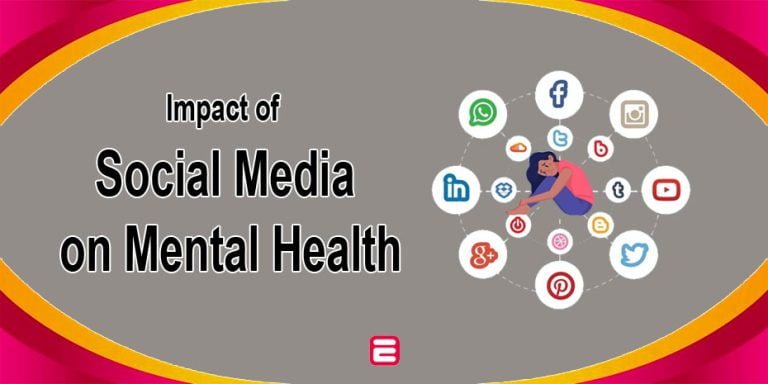The prevalence of social media among students has sparked worries about its effects on mental health. Despite its advantages in connecting and sharing information, it can contribute to heightened anxiety, depression, and body image concerns. FOMO, sleep disruptions, and lower self-esteem are common consequences of comparison and cyberbullying. Striking a balance between the pros and cons of social media becomes vital in fostering positive mental well-being for students.
Increased Anxiety and Depression
The extensive use of social media has been associated with a troubling rise in anxiety and depression among its users. Constant exposure to curated images and the seemingly perfect lives of others can create feelings of inadequacy and FOMO. Cyberbullying and negative online interactions contribute to emotional distress. Seeking validation through likes and maintaining an idealized online persona can exacerbate anxiety and depression. Moreover, the addictive nature of social media can lead to excessive usage, disrupting daily life and worsening mental health issues. Addressing these challenges and promoting a healthier relationship with social media is essential to safeguard individuals’ mental well-being.
Sleep Disturbances
Social media usage, especially before bedtime, has been linked to sleep disturbances among young individuals. Excessive screen time disrupts sleep patterns and quality due to the blue light emitted by screens, which suppresses melatonin production, hindering falling and staying asleep. Additionally, engaging with stimulating content, responding to messages, or experiencing emotional reactions to online interactions keeps individuals mentally alert, making it difficult to relax before bedtime. Sleep disruptions can result in fatigue, mood changes, and reduced cognitive performance, impacting overall well-being and productivity. It is essential to establish healthy digital habits and set boundaries for usage, especially during the evening hours.
Body Image Issues
In today’s society, body image issues have become prevalent, with social media significantly exacerbating them. The constant exposure to edited and idealized images of seemingly perfect bodies fosters unrealistic beauty standards and comparisons. Particularly affecting young users, social media platforms unintentionally perpetuate body dissatisfaction and self-criticism. The pressure to conform to these unattainable ideals can lead to eating disorders, body dysmorphia, and low self-esteem. Seeking validation through likes and appearance-related comments further contributes to negative body image. Raising awareness, promoting body positivity, and encouraging genuine representations on social media platforms is vital.
Reduced Self-Esteem
Social media significantly impacts self-esteem, especially among young users, with detrimental effects. Constantly comparing oneself to the carefully curated online personas of others can lead to a decline in self-esteem. Seeking validation through likes, comments, and shares may cause individuals to question their self-worth based on virtual approval. Cyberbullying and negative feedback worsen the situation, fostering feelings of inadequacy and unworthiness. Additionally, presenting an idealized version of oneself on social media breeds insecurity and fear of not meeting societal standards. Promoting a healthy self-concept and encouraging authentic self-expression is essential, emphasizing that self-worth extends beyond the virtual world.
Social Isolation

Social media paradoxically impacts social isolation, contributing to loneliness despite its global connectivity. Over-reliance on virtual interactions reduces face-to-face socialization, fostering isolation. Excessive social media use can deter individuals from forming meaningful in-person relationships. Moreover, the pressure to portray an idealized online life leads to social comparison and feelings of inadequacy, further deepening isolation. Finding a balance between online and offline interactions is crucial to counteract social isolation. Encouraging genuine connections and promoting regular social engagements beyond the digital world is essential in fostering a sense of community and belonging.
Academic Impact
Social media’s influence has extended to students’ academic performance, impacting them in various ways. Excessive use of social media can lead to distraction, reducing focus and productivity in studies. Constant notifications and the urge to check social platforms can disrupt studying routines and concentration.
Additionally, spending excessive time on social media may result in procrastination and missed assignment deadlines. The addictive nature of social media can lead to time mismanagement, affecting students’ ability to prioritize their academic responsibilities. Addressing these academic impacts involves promoting responsible social media usage, setting boundaries, and developing effective time management skills to balance online engagement and academic commitments.
Fear of Missing Out (FOMO)
The pervasive influence of social media has fueled the phenomenon known as the fear of missing out (FOMO). Constant exposure to others’ exciting activities and experiences can trigger feelings of inadequacy and a fear of exclusion. The pressure to stay updated on the latest trends and events can cause anxiety and a compulsion to always be connected to social media platforms. This fear often leads to compulsive checking of notifications, resulting in reduced productivity and focus in daily life. To mitigate the impact of FOMO, individuals should practice mindfulness in their social media usage, establish healthy boundaries, and prioritize living in the present rather than comparing themselves to others’ virtual lives.
Addiction and Time Management
Social media addiction has become a growing concern, affecting individuals’ time management and overall well-being. The allure of constant connectivity and the fear of missing out (FOMO) can lead to excessive usage, consuming significant chunks of time. This addiction can interfere with daily responsibilities, including academic and professional commitments. Individuals may need help prioritizing tasks, leading to reduced productivity and increased stress.
The compulsive need to check notifications and engage with social media content exacerbates the problem. To address social media addiction and improve time management, individuals should set specific time limits for usage, practice self-discipline, and seek support if needed. By fostering a healthier relationship with social media, one can regain control over their time and focus on essential aspects of life.
Conclusion
In summary, the influence of social media on students’ mental health is intricate and multi-dimensional. Although social platforms offer connectivity and knowledge exchange, they expose youngsters to cyberbullying, comparison anxiety, and addiction. Excessive usage can result in anxiety, depression, and isolation.
Yet, by encouraging digital literacy, self-control, and positive online conduct, we can alleviate these adverse effects. Emphasizing a balanced approach, where students use social media responsibly and mindfully, becomes imperative. Collaborative efforts between schools, parents, and policymakers are vital in cultivating a supportive environment that promotes healthy social media habits and enhances students’ mental well-being.

